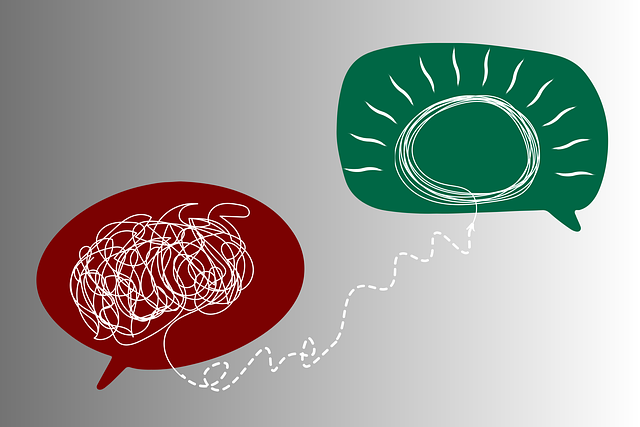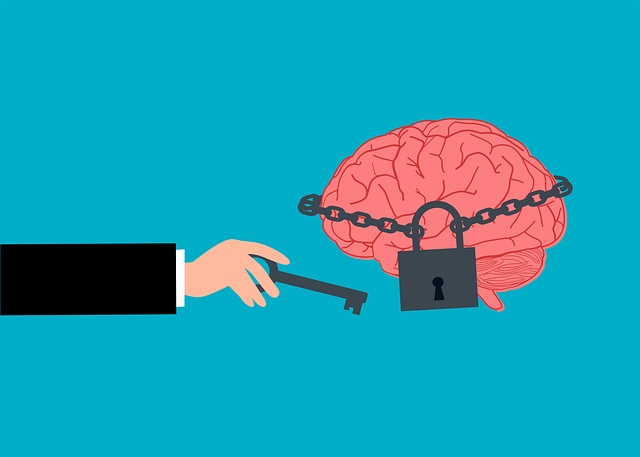Centennial Gambling Therapy emphasizes Emotional Intelligence (EQ) as a cornerstone for personal growth and mental well-being. By enhancing self-awareness, individuals gain insights into gambling triggers and develop strategies to break addiction cycles. EQ practices include emotional regulation techniques, empathy cultivation through mindfulness, and active listening skills. These approaches not only improve relationships but also equip people with tools to navigate stress, anxiety, and challenging situations effectively, ultimately promoting overall well-being.
Emotional intelligence (EI) is a powerful tool for personal growth, especially in navigating complex areas like Centennial Gambling Therapy. This article explores the five core components of EI: understanding and managing emotions, enhancing empathy, self-awareness, emotional regulation, and active listening. By delving into these aspects, we uncover how cultivating EI can lead to better mental health outcomes, improved relationships, and more effective coping strategies, particularly in therapy settings like Centennial Gambling Therapy.
- Understanding Emotional Intelligence: A Key to Personal Growth
- The Role of Self-Awareness in Centennial Gambling Therapy
- Enhancing Empathy: Connecting with Others on a Deeper Level
- Regulating Emotions: Managing Stress and Impulse Control
- Practicing Active Listening: Building Strong Relationships
Understanding Emotional Intelligence: A Key to Personal Growth

Emotional intelligence (EQ) is a powerful tool for personal growth and well-being. It involves recognizing, understanding, and managing one’s own emotions, as well as empathizing with others’ feelings. By cultivating EQ, individuals can navigate complex social situations with greater ease, foster healthier relationships, and make more informed decisions. This is particularly relevant in today’s fast-paced world where stress, anxiety, and mental health challenges are prevalent.
Centennial Gambling Therapy emphasizes the importance of emotional intelligence as a foundational element for improving mental health awareness and anxiety relief. Through various therapeutic approaches, individuals learn to develop emotional regulation skills, enabling them to better cope with life’s challenges. By understanding their own emotional responses and those of others, people can create positive changes in their lives, leading to enhanced overall well-being.
The Role of Self-Awareness in Centennial Gambling Therapy

Self-awareness is a cornerstone in Centennial Gambling Therapy, serving as the foundation for individuals to navigate and overcome their struggles with gambling. By fostering an introspective mindset, clients gain profound insights into their emotional triggers, habits, and patterns of thinking. This process allows them to recognize the connection between their feelings and gambling behaviors, breaking free from the cycle of addiction. Through self-awareness, individuals can identify moments of stress, anxiety, or boredom that often lead to impulsive gambling decisions.
Centennial Gambling Therapy encourages clients to maintain a Mental Wellness Journaling Exercise, where they reflect on their emotions, thoughts, and gambling urges daily. This practice strengthens their ability to recognize early warning signs and implement effective coping strategies. Moreover, self-awareness enables individuals to develop Emotional Intelligence, enabling them to manage stress more efficiently during challenging situations. The Stress Management Workshops Organization offers valuable guidance in this regard, teaching practical skills for stress reduction and emotional regulation.
Enhancing Empathy: Connecting with Others on a Deeper Level

Empathy is a cornerstone of emotional intelligence and one of the most valuable tools in the arsenal of Centennial Gambling Therapy. By cultivating empathy, individuals can connect with others on a deeper level, fostering meaningful relationships and enhancing their overall emotional well-being. This involves putting oneself in another’s shoes, understanding their feelings, and responding with genuine care. Empathy allows us to navigate social interactions more skillfully, resolving conflicts and building stronger bonds.
In the context of promoting emotional well-being, compassion cultivation practices play a pivotal role. These involve training the mind to cultivate warm-hearted feelings towards oneself and others. Through various techniques, such as mindful meditation, individuals can enhance their ability to empathize, leading to increased self-care practices and a more positive outlook on life. By embracing these practices, people not only improve their interpersonal relationships but also develop a deeper sense of compassion for themselves, fostering resilience in the face of challenges.
Regulating Emotions: Managing Stress and Impulse Control

Emotional intelligence involves learning to recognize, understand, and manage our own emotions as well as those of others. A crucial aspect of this is regulating emotions, especially when dealing with stress and impulse control. High levels of emotional regulation allow individuals to respond calmly and thoughtfully to challenging situations, preventing impulsive decisions that could have negative consequences. This is particularly important in areas like the workplace or social interactions where effective communication strategies are vital.
Centennial Gambling Therapy offers valuable insights into managing emotions through its Mental Health Education Programs Design. By teaching techniques for stress management, these programs empower individuals to navigate difficult emotional states constructively. Moreover, Mental Health Policy Analysis and Advocacy play a role in promoting policies that support access to such emotional intelligence-building initiatives, ultimately enhancing overall mental health and well-being.
Practicing Active Listening: Building Strong Relationships

Active listening is a cornerstone of emotional intelligence that fosters strong relationships, a key aspect often emphasized by Centennial Gambling Therapy in their community outreach program implementation. It involves fully concentrating on what someone else is saying, understanding their perspective, and responding thoughtfully. This skill goes beyond simple hearing; it’s about engaging deeply in conversations, ensuring every word is heard and understood.
In the context of mental health awareness, active listening can be a powerful tool in depression prevention. When individuals feel truly heard and understood, it strengthens connections, builds trust, and encourages open communication. This is vital, as Mental Health Awareness highlights the importance of recognizing and addressing emotional needs early to prevent deeper issues from developing. Through active listening, we can create supportive environments that promote healing and well-being, ultimately contributing to a healthier community.
Emotional intelligence, a multifaceted concept, emerges as a powerful tool for personal growth and enhanced relationships. As discussed in this article, understanding and cultivating emotional intelligence involves several key components, including self-awareness, empathy, emotion regulation, and active listening. Specifically, the integration of strategies from Centennial Gambling Therapy can significantly contribute to these areas. By recognizing and managing our emotions effectively, we not only improve our mental well-being but also foster deeper connections with others, ultimately leading to more fulfilling relationships and a more balanced life.














